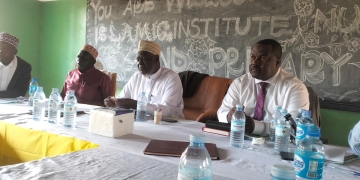
KAMPALA — President Museveni has assented to the controversial computer misuse Bill and three other Bills, according to State House communications team.
The other bills signed into law include; The Physical Planners’ Registration Act, 2022, The Kampala Capital City (Amendment) Act, 2022 and The Mining and Minerals Act, 2022.
“The four bills were recently passed by the Parliament of Uganda and were awaiting President Museveni’s assent,” State House said in a statement.
The new bills now effectively become law.
But how will they affect the ordinary Ugandan?
The Computer Misuse (Amendment) Bill, 2022
The President’s assenting to the controversial Computer Misuse (Amendment) Bill, 2022, which now becomes an Act of Parliament, is a blow to human rights defenders and other stakeholders, who had appealed to him to shelve it, citing its abuse of constitutional freedoms.
The Bill, which was introduced by Kampala Central MP, Mr Muhammad Nsereko, has a number of provisions, including criminalising unauthorised access to information, sending unsolicited information, publishing photos of children without parental or guidance consent, publishing false and malicious information and publishing unauthorised information.
The punishment for the convicted person is Shs15 million or a seven-year jail term, if not both.
It also criminalises writing, sending or sharing of any information through a computer, which is likely to ridicule, degrade or demean another person, group of persons, tribe, ethnicity, religion, or gender; create divisions among persons, a tribe, an ethnicity, a religion or gender; and or, promote hostility against a person, group of persons, a tribe, an ethnicity group, a religion or gender.
Mr. Robert Ssempala, the Executive Director of Human Rights Network for Journalists (HRNJ) Uganda, says the Computer Misuse (Amendment) Bill, 2022, is aimed at gagging media freedom and freedom of expression.
“The criminalisation of free sharing of information shall certainly stifle this and shall frustrate the exercise of this type of journalism, as much as it will the professional one too. The ultimate effect of this is to contravene the Constitution,” he said.
During the public hearing, the ICT Subcommittee of Parliament received a total of 17 submissions through public hearings, who all expressed concern over repetitive legislation and lack of basis for the Bill. It is still unclear how the committee ended up with a report in support of the Bill.
Mr Ssempala said the Bill should not have been passed by Parliament because it was premised on his sentiments, but not the facts on the ground.
For example, he said, Clause 3 of the Bill that seeks to create the offence of unauthorised sharing of information about children is covered under the Children’s (Amendment) Act, 2016, which already puts in place the right of children to privacy, and makes it an offence for anyone.
“It is our submission that a good law should always be seen to be fair and not discriminative, vengeful or oppressive to a group of people. The general feeling pertaining to this proposed amendment is that it seeks to target the free sharing of information and press and media freedoms,” he said.
The Mining and Minerals Act, 2022
The Mining and Minerals Act, 2022, seeks to improve mining and mineral administration, business processes, and promote value addition to minerals.
The Bill establishes the Uganda National Mining Company which is to manage the government’s commercial holding and participating interests in mineral agreements. It mandates the Company to hold 15 per cent free equity in all large and medium mining ventures and also have the right to pay up to 20 per cent extra shares in the mining ventures at the commercial rate.
The Bill provides that local governments shall receive reports and plans of the companies operating in their jurisdiction every six months. This is aimed at curing the defect where the non-involvement of local governments in mining operations has made it difficult for districts, sub-counties and landowners to assess the expected royalties from within their boundaries.
The Bill requires applicants for exploration licences to provide a statement with proposals in regard to employment and training of Ugandans, a training plan to that effect and a budget while applying for the license. It is envisioned that the training should result in a succession plan for minimizing dependence on expatriates in favour of skills developed through this training, among others.
The Physical Planners’ Registration Act, 2022
For the Physical Planners’ Registration Act, 2022, it provides for the establishment of a Physical Planners’ Registration Board; to provide for the powers and functions of the Board and to provide for the registration of physical planners in the country among other provisions.
The Act addresses the absence of a legal framework through which physical planners are regulated. Thus, it intends to solve the challenges of unplanned physical development in urban and rural, violation of minimum physical planning standards and abuse of environmentally sensitive areas.
The Kampala Capital City Authority (Amendment) Act
The Kampala Capital City Authority (Amendment) Act approved by the President allows the Minister for Kampala to determine the emoluments of the Speaker, Deputy Speaker, and their Division counterparts.
The Act also empowers the Minister to consult with the Ministers of Finance and Public Service to determine the emoluments payable to these political leaders.
“The Minister shall, in consultation with the Minister responsible for Finance and the Minister responsible for the Public Service, determine the remuneration payable.
Speaker and Deputy Speaker of the Council, Councilors of the council, Mayors and Deputy mayors of lower urban councils, speakers and Deputy Speakers of lower urban councils, chairpersons and councilors of lower urban councils,” reads clause 2 of the Act.










